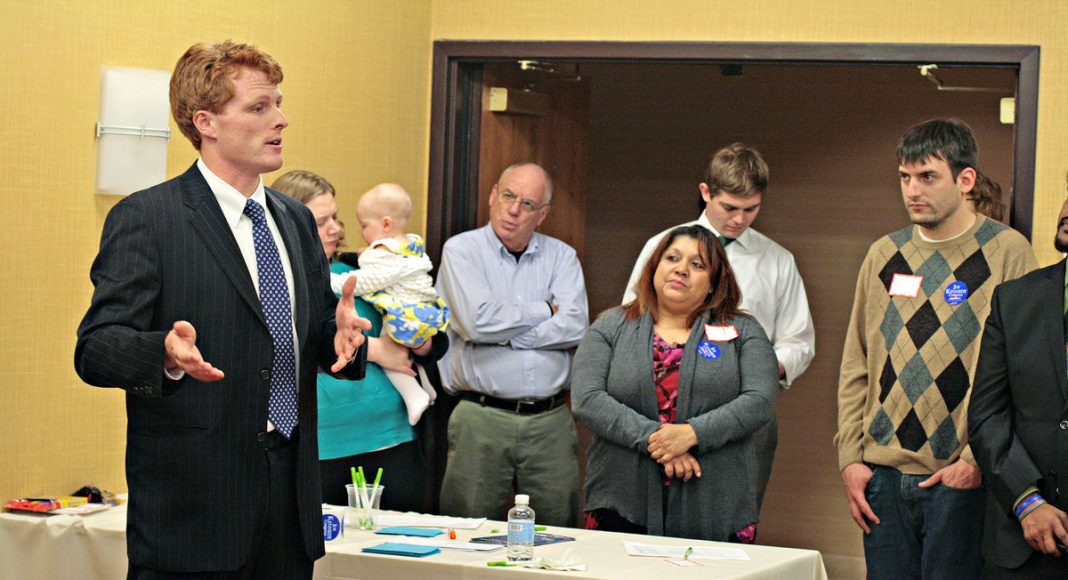Back in 2016, as Massachusetts voters were considering legalizing recreational cannabis, Rep. Joe Kennedy III (D) didn’t mince words about his position. “I don’t think marijuana should be legalized,” he told Boston Magazine.
Now, as legal adult-use cannabis sales have begun in the state, Kennedy has changed his tune and is embracing federal legalization, he announced in an op-ed for STAT News. Kennedy’s change of heart stems from widespread legalization at the state level, leaving the federal government unable to effectively regulate and manage the burgeoning cannabis industry.
“Given the rapid pace of state-level legalization and liberalization, I believe we must implement strong, clear, and fair federal guidelines. To do that requires us to remove marijuana from the Controlled Substances Act (CSA) and legalize it at the federal level,” Kennedy writes.
He cites various sobering statistics about the federal government’s failed War on Drugs, including the disproportionate persecution to people of color and deadly opioid addiction rates. Kennedy is also in favor of removing marijuana’s Schedule I status, so that federal research institutions can properly study the plant in its full capacity.
“As long as marijuana remains regulated by the CSA, the federal government is barred from rectifying these failures or acting with any oversight authority as states move ahead with reform at record pace. So a broken, patchwork system flourishes in our country today with no federal guardrails—like the ones we have for alcohol and tobacco—to protect public health and safety and ensure equal justice,” Kennedy writes.
However, it’s worth mentioning that as recently as March of this year, Kennedy was still beating the prohibition drum. He told Vox’s Ezra Klein he worried that legalizing cannabis could further the state’s opioid problems.
“One of my main focuses in Congress is on mental health and addiction and there are a number of voices in that community that do pose serious questions about either the decriminalization or legalization efforts,” he said.
Whether Kennedy’s new position stems from a genuine change in belief, or if he’s jumping aboard the train to please his constituents remain open to interpretation. The congressman’s actions will speak louder than his words. Or, more accurately, if his actions will live up to the pro-cannabis proclamations he made this week.
As Kennedy wrote: “My concerns about the public health impact of marijuana remain. But it has become clear that prohibition has wholly failed to address them. I believe legalization is our best chance to actually dedicate resources toward consumer safety, abuse prevention, and treatment for those who need it.”


